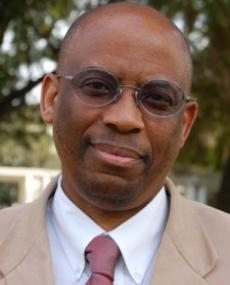
Professor Ntongela Masilela was born on 9 December 1948 in Orlando West, Soweto, Transvaal Province (now Gauteng), the eldest son of Florence Vuyiswa Masilela and Dr Albert Mahlathini Magija Masilela. His grandparents strongly believed in education and his father was one of the first graduates in his village in the Northern Transvaal (now known as Limpopo Province).
A child of exile, he spent most of his life living outside of South Africa, leaving the country when he was still a teenager. As a result, he grew up in Soweto, Los Angeles, United States of America (USA), and Nairobi, Kenya, which is where his parents relocated to in exile. After his father died in Zambia, he and his three brothers – Monde, Basuke, and Temba – were raised by his mother, who later became a Chief Nurse in the Kenyan public health sector.
He attended Delamere Boys High School in Nairobi and then followed in his father’s footsteps by going to the University of California, Los Angeles (UCLA), where he obtained his BA, MA, and PhD degrees. He obtained his doctoral degree in Sociology in 1977; his doctoral thesis was titled Theory and History in Marxist Poetics.
He held a research position at the Fanon Research and Development Centre at the Martin Luther King Jr General Hospital in Compton, California. In 1979, he returned to Kenya where he started teaching at the University of Nairobi. He studied further (at the Lodz Film School in Lodz, Poland) and later taught at the University of Lodz as well as at the University of Koblenz-Landau in Germany. In 1989, he relocated with his family to the United States of America (USA), where he joined Pitzer College in Claremont, California, and remained there until 2012. He taught world literature, literary theory, cinema studies, and postmodernism and also set up a research centre for the study of African intellectuals. Furthermore, he also taught at the University of California and Los Angeles (UCLA) and the University of California in Irvine (UCI).
Even though most of his academic career was in the USA, his academic focus rested largely on South Africa and the African continent as a whole. His work was greatly concerned with giving value to Africa’s intellectual legacy (writing extensively on the New African Movement) and most importantly, archiving South Africa’s intellectual heritage. His website, New African Movement, is an invaluable effort to collect and archive the works of South African intellectuals who have been historically overlooked or forgotten.
During his vast research, he built an impressive archive of articles and newspaper clippings highlighting the works of Black South African scholars and writers. This is reflected in the several books, essays and articles he authored throughout his career. These include Black Modernity: 20th Century Discourses between the United States and South Africa (1999), Internationalism and Nationalism in Medicine: Henry Sigerist (2005), The Cultural Modernity of H. I. E. Dhlomo (2007), An Outline of the New African Movement in South Africa (2013), The Historical Figures of the New African Movement: Volume One (2014), and A South African Looks at the African Diaspora: Essays and Interviews (2017). He also co-edited a collection of essays on South African cinema with Dr Isabel Balseiro titled To Change Reels: Film and Culture in South Africa (2003).
In his later years, he took part in many international academic conferences, regularly returning to South Africa upon invitation. One such conference was held in August 2010 where he delivered the keynote address at the international conference in Tshwane, Gauteng, organised by the Human Sciences Research Council (HSRC) and the University of South Africa (UNISA) in recognition of Professor Bernard Makhosezwe Magubane’s 80th birthday. Prof Masilela played an essential part in assisting Prof Magubane put together his collection of essays, which were published in 2000 under the title African Sociology: Towards a Critical Perspective.
Upon his retirement, he moved to Bangkok, Thailand, but continued to make intellectual contributions to South Africa’s intellectual history. On 6 July 2020, Prof Masilela died at the age of 72 after a long battle with an illness. At the time of his death, he was Professor Emeritus of Creative Studies at Pitzer College.
He is recognised as one of the top scholars that South Africa has produced and his intellectual contribution through his historical archive is a highly respected one.
Professor Ntongela Masilela is survived by his second wife Wasana Suesena Masilela, his two daughters Anna Vuyiswa and Nomaduma Rosa, their mother Urszula, and his brothers Monde and Temba.